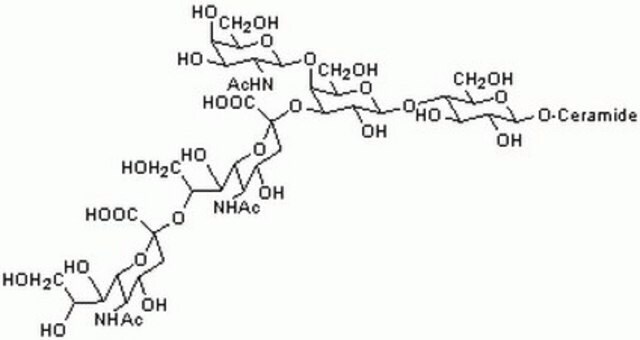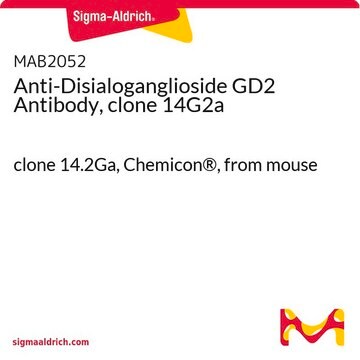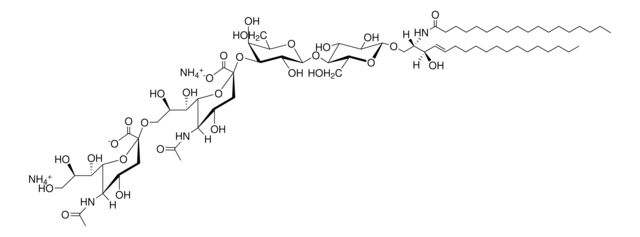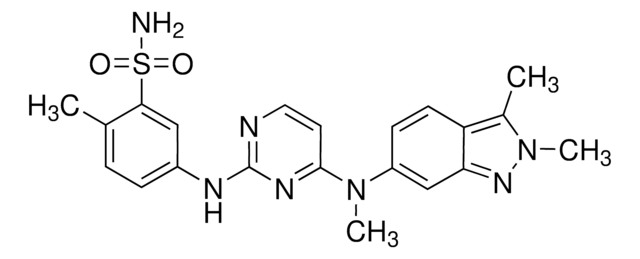G0776
Disialoganglioside-GD2 from bovine brain
~95%, lyophilized powder, semisynthetic
About This Item
Recommended Products
Quality Level
Assay
~95%
form
lyophilized powder
storage temp.
−20°C
InChI
1S/C74H134N4O32/c1-4-6-8-10-12-14-16-18-19-21-23-25-27-29-31-33-52(89)78-43(44(84)32-30-28-26-24-22-20-17-15-13-11-9-7-5-2)40-101-69-61(95)60(94)63(50(38-81)104-69)106-70-62(96)67(64(51(39-82)105-70)107-68-55(77-42(3)83)59(93)58(92)49(37-80)103-68)110-74(72(99)100)35-46(86)54(76)66(109-74)57(91)48(88)41-102-73(71(97)98)34-45(85)53(75)65(108-73)56(90)47(87)36-79/h30,32,43-51,53-70,79-82,84-88,90-96H,4-29,31,33-41,75-76H2,1-3H3,(H,77,83)(H,78,89)(H,97,98)(H,99,100)/b32-30+/t43?,44?,45-,46-,47?,48?,49-,50-,51-,53+,54+,55-,56?,57?,58+,59-,60-,61-,62-,63-,64+,65+,66+,67-,68+,69-,70+,73-,74+/m1/s1
InChI key
FFILOTSTFMXQJC-QCFYAKGBSA-N
Amino Acid Sequence
General description
Application
- in the ganglioside- enzyme-linked immunosorbent assay (ELISA)
- in capture ELISA with anti-GD2 antibody (ch14.18)
- as a control to test its effect on reactivating autophagy in primary fibroblasts
Biochem/physiol Actions
Storage Class Code
11 - Combustible Solids
WGK
WGK 3
Flash Point(F)
Not applicable
Flash Point(C)
Not applicable
Personal Protective Equipment
Choose from one of the most recent versions:
Certificates of Analysis (COA)
Don't see the Right Version?
If you require a particular version, you can look up a specific certificate by the Lot or Batch number.
Already Own This Product?
Find documentation for the products that you have recently purchased in the Document Library.
Our team of scientists has experience in all areas of research including Life Science, Material Science, Chemical Synthesis, Chromatography, Analytical and many others.
Contact Technical Service








